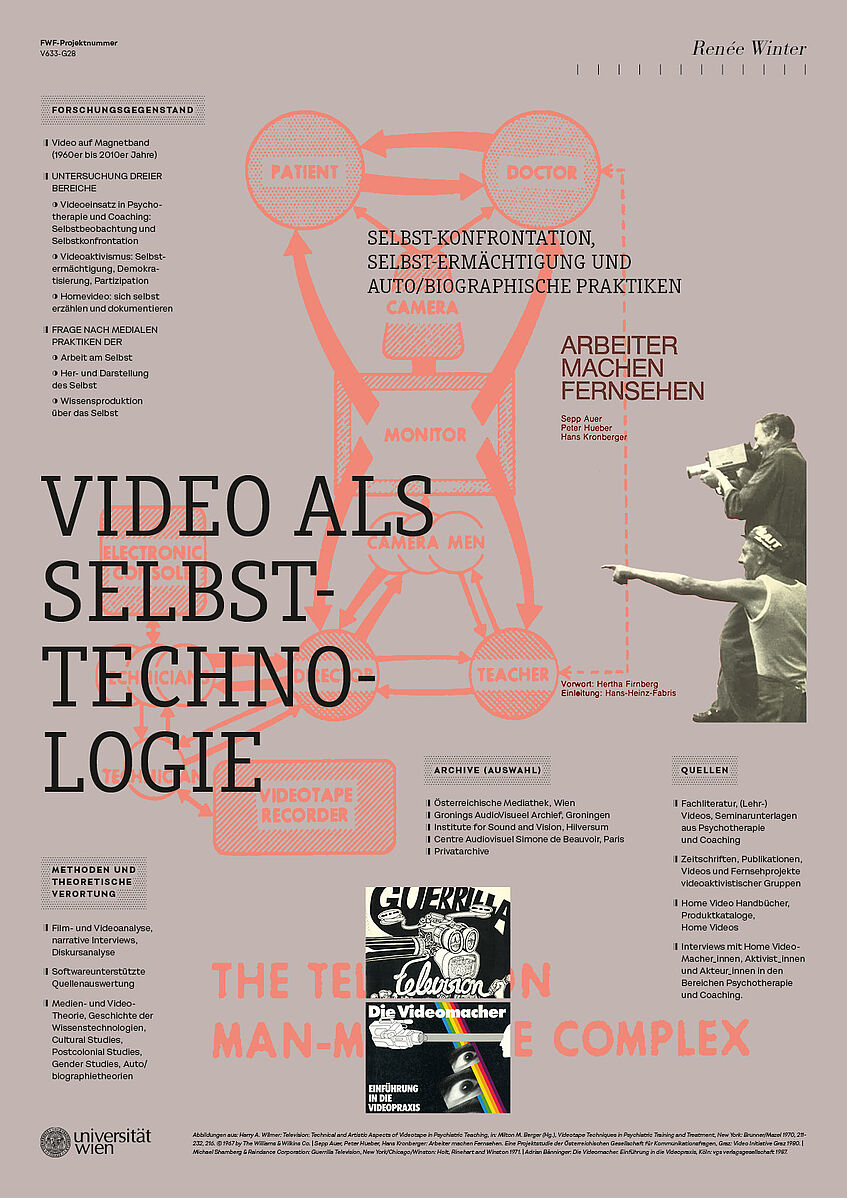Video as Technology of the Self: Self-confrontation, Self-empowerment and Auto/biographical Practices
Video as Technology of the Self: Self-confrontation, Self-empowerment and Auto/biographical Practices
Project Leader: Mag.* Dr.* Renée Winter
Funding: FWF – Elise Richter-Programm (Projektnummer V-633)
Duration: 2018-2025
Project website
This project investigates the ways in which video technology has changed media practices that are directed towards the presentation and portrayal of the self. Video on magnetic tape was used from the late 1950s to the 2010s, with the greatest popularity and dissemination from the late 1970s to the 1990s, until it was replaced by other digital audiovisual forms.
Video has several features that enabled new uses compared to (narrow) film: the possibility of immediate replay and viewing, synchronous sound recording and, above all, its affordability and the resulting proliferation changed the social practices associated with audiovisual media enormously and continues to have an impact today. The project thus also historicises current aspects of media use in the context of smartphone and online media use and addresses questions of connectivity, mobility and the shifting and dissolution of the boundaries between the private and the public.
The project's main hypothesis, that the spread and application of video technology has given rise to new forms of self-technologies, is examined on the basis of three assumptions: 1) the ability of video tape to be viewed immediately – without film development times – and to record image and sound information synchronously has significantly influenced methods of self-confrontation in psychotherapy, education and training, and in the coaching sector. 2) Video was seen as a means of self-empowerment and democratisation. Due to its affordability and the simplified copying and distribution possibilities, video promised social and political change at the global and local level, which was expressed in the founding of video collectives, guerrilla TV and the use of video in feminist contexts, in the US civil rights movement, in AIDS activism or in development cooperation. 3) Video changed the private and autobiographical use of audiovisual media. The possibility and affordability of recording for hours, deleting and re-recording tapes as needed had a major impact on the representations of private and everyday life and the audiovisual representations of one's own life story. Video in everyday use is also intrinsically linked to changing conceptions of family, gender and sexuality. In this sense, the project should ultimately also contribute to a better understanding of the interdependency and interconnection of media devices and gender.
The project analyses these hypotheses on the basis of literature and videos from the Anglo-American and Western European areas. In addition, interviews are conducted with actors from the fields examined (psychotherapy, education and coaching, activism and home video use).


